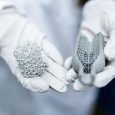Education is a diverse sector. Apart from conventional degree programs, there are also certificates and training courses that you can do. The purpose of these courses is to equip you with a unique set of skills and get you exposure. Exposure is necessary for any field. It gives you the ability and the skills to navigate through your career and make decisions for yourself. If you’re in the medical sector and are considering getting certification for yourself, go for it. Don’t hold yourself back thinking the education you get at school is enough to keep you afloat. Here are some benefits of having emergency medical training and certifications that can help you through your career. Here’s what you need to know:

-
You get cross-training
Medical certificates cover different areas of expertise. You get to experience knowledge from every department. If your area of expertise is biotechnology, you not only learn about biotechnology but also other disciplines. You get to explore subjects like patient communication, anatomy, and even medical terminology. Some certificates may also teach you to manage and write health records. These written skills are essential because they help you with medical coding and training and work on different software.
-
You learn how to save lives
Some certificates teach you essential life-saving techniques. Suppose you already hold a basic life support certificate. In that case, you can apply for a BLS renewal and upgrade your skills right away. You’ll notice that picking up essential life skills is helpful in the medical sector and outside of it. An emergency can strike at any time. You should know how to take care of people when they have a heart attack, are choking, or bleeding excessively. Essential life support covers both adults and children. You can learn how to help someone experiencing a heart attack or administer CPR till the medics arrive. If a person is choking, you can perform the Heimlich maneuver and prevent the situation from escalating.
-
Identify signs
You develop an eye to see signs and symptoms of a possible heart attack. So when a patient is about to go down, you can jump into action and prevent the attack from escalating. It is through the training courses, videos, and instructions you get better.
-
You get better job opportunities
When an employer is going through your CV, your education is part of the evaluation process. Part two is looking at the skills you possess. If you have a wide selection of certificates, it shows how committed you are to your field. Employers will enjoy having you on the team. Your skills will also reflect on your interpersonal abilities. When you have good exposure, you’re more confident, know how to communicate, and manage workload well. So if you’re interested in excelling in your career, you should try getting certificates. This also applies to nurses who are looking to advance their careers through additional education. For example, moving from RN to BSN allows you to develop your professional nursing practice even further. Are you interested in an RN to BSN program? Learn more from UTA.
-
Informs you about state regulations
Medical training certificates prepare individuals for different training and licensing requirements. This means when you show up for training, you get to know what the healthcare sector wants from you. Under proper guidance, you learn what state is suitable for your career prospects. You also understand what regulations work in your favor when you’re going for a job. You need to know state regulations as a medical worker. These are a set of laws that inform you what your career needs and what you need to improve on. So when you’re thinking of switching your location, you’ll know what documents to submit.
-
You get better at clinical instructions
If you’re not a doctor but work in the medical sector, it helps you get better with clinical instructions. The medical industry can use all hands on deck. Whether you’re working with a doctor or with patients independently, you need to be ready for an urgent situation. These include learning how to read the blood pressure, check for wounds, treat them, and inject patients with medicines. While these come under primary healthcare, they are critical clinical instructions. Without these, a complete diagnostic picture cannot form.
-
You can help out in complex emergencies
Complex emergencies need a very surface-level understanding of medicine to keep a patient stable before a doctor steps in and takes care of the rest. Medical training certificates provide you with the footing that you need to help stabilize patients. Doctors cannot intervene unless they’re sure the patient won’t collapse on them. Most patients who are going through a crisis show signs and symptoms that are easy to pick up. All you need to do is pay attention and administer care. The decisions you take make a big difference when it comes to patient well-being. Since the ER is already crowded, it helps them out immensely. You can help out paramedics in performing their job.
-
Self-paced learning
Most medical certificates offer you a diverse environment that allows you to pick up skills in a self-paced manner. Unlike medical schools, certifications ensure you pick up new and essential skills. You get skilled instructors who guide you along the way, making sure that you’re able to pick up all the necessary knowledge. If you have any ambiguities, these professionals can answer them for you and even correct your misconceptions. So unlike traditional schools, you’re not struggling to keep up. You also get a plethora of resources at your disposal that you can refer to anytime. So when you start practicing your skills, you’re well aware of what you need to do.
Wrap up
Medical experts need to pick up the necessary skills to help them through the healthcare sector. Medicine and other top programs in that area is not easy field to work with. There is much you need to learn, and there’s much you need to get better at. Medical training certificates are a stepping stone in teaching you valuable skills to work with patients. You develop a sharp eye when it comes to identifying potential risks in an emergency. Medical training helps you study in a self-paced manner and assist you in complex emergencies. So it would help if you considered acquiring a medical training certificate.




